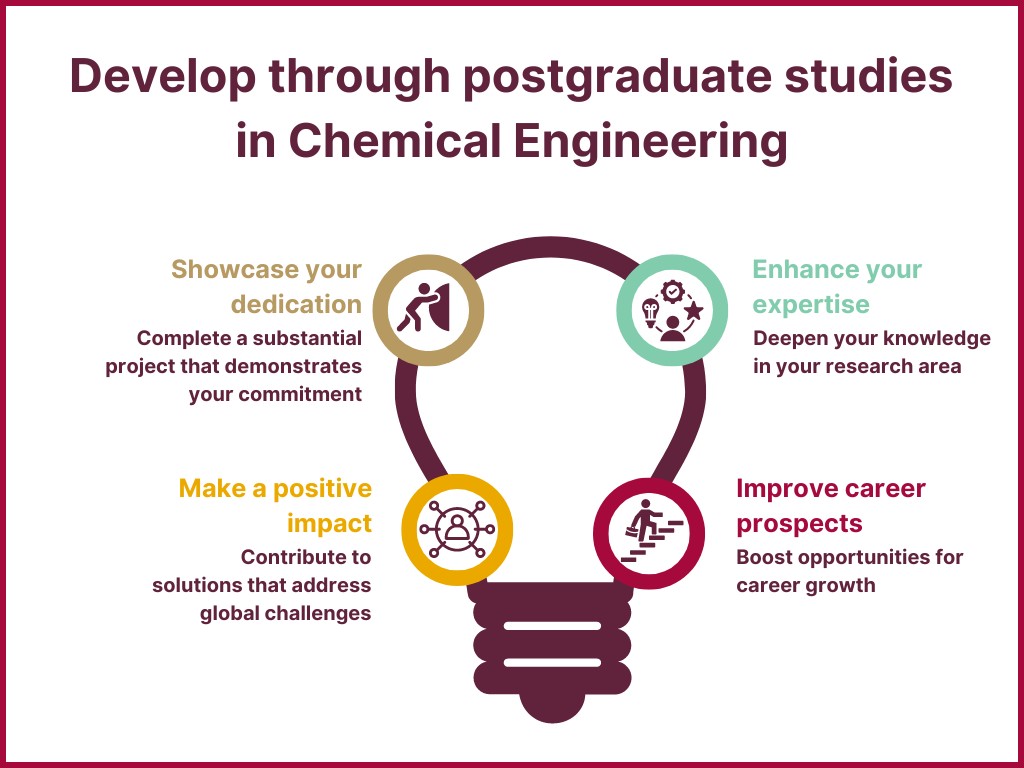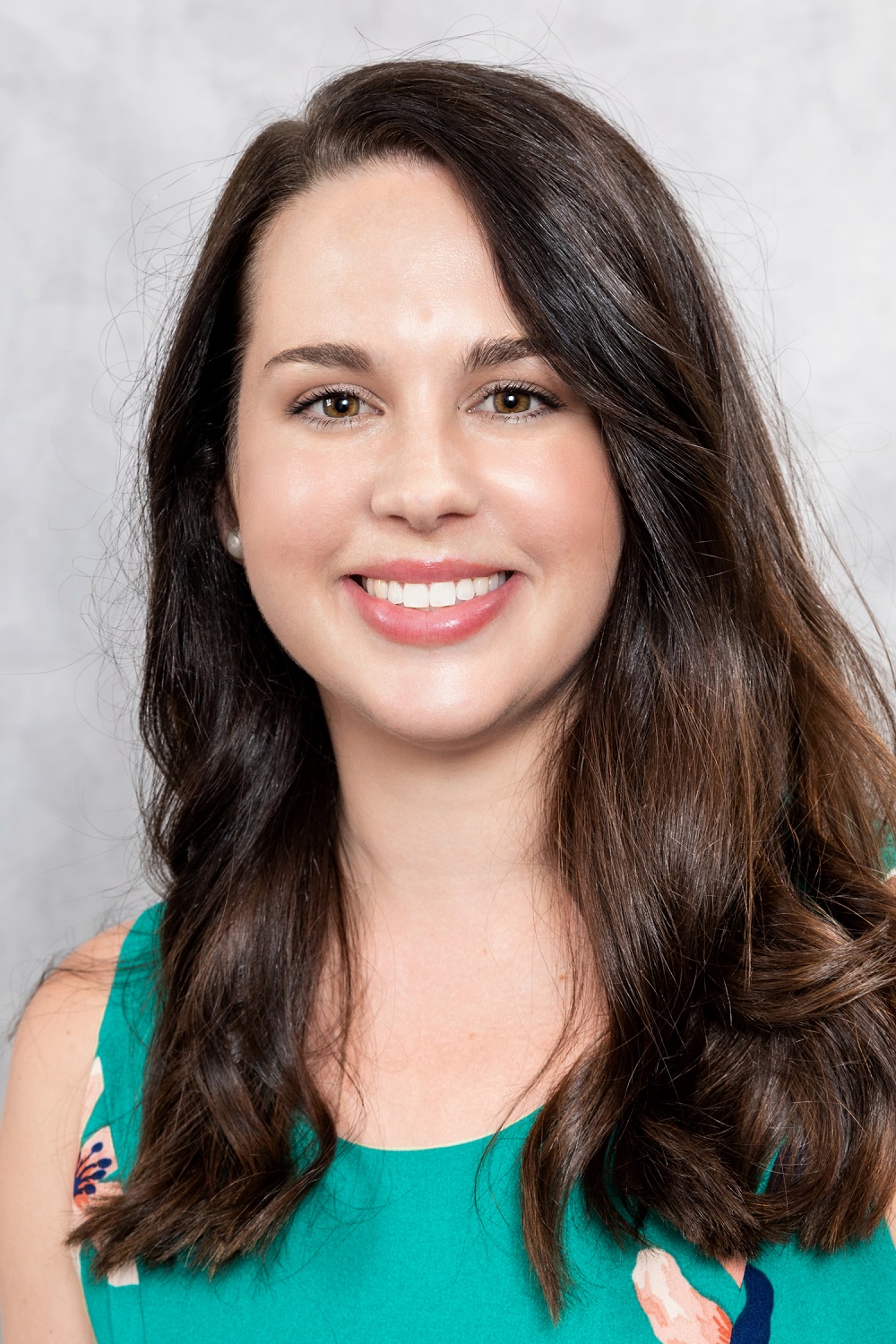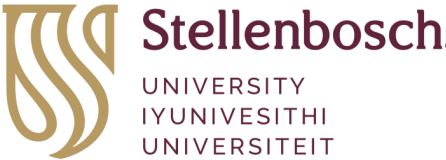
Showcase your dedication.
Enhance your expertise.
Make a positive impact.
Improve career prospects.
A PhD in Chemical Engineering is for ambitious innovators ready to make a novel contribution to the field. As the highest academic qualification, this research-based degree offers an opportunity to lead research and develop innovative approaches to position you at the forefront of scientific and industrial advancements.
Programme structure
The PhD programme in Chemical Engineering at Stellenbosch University is entirely research-based, requiring three years of full-time study. Part-time enrolment is considered on a case-by-case basis, particularly for candidates who are full-time employed as engineers and wish to conduct industry-based research in collaboration with a department supervisor. Candidates must produce a dissertation for evaluation and publish sufficient academic articles in accredited journals as part of the degree requirements.
For this NQF level 10 programme, students enrol in a single 360-credit module. While no other taught modules are mandatory, additional modules may be taken with the supervisor’s permission. Full-time resident students participate in an in-house research methodology module at the beginning of the first academic year, attended in person at the department. Additionally, students register for a 1-credit module in their first year focusing on professional communication and avoiding plagiarism (ProfCom 871), which is completed via our online platform, SUNLearn.

Full-time registration
- Enrolment for approximately 3 academic years
- First year of registration without a title
- Formal PhD proposal to be submitted, reviewed, and approved within the first 12 months of registration
Part-time registration
- Enrolment for approximately 4-5 academic years
- First year of registration preferably with a title
- Registration after the proposal has been reviewed and accepted
Admission requirements
Candidates eligible to apply for a PhD at the Department of Chemical Engineering include graduates with an MEng or MSc Eng degree in Chemical/Extractive Metallurgical Engineering, as well as graduates with an MSc degree in Computer Science, Mathematics, Applied Mathematics, Chemistry, Biological Sciences, or Physics. Please note that completing a PhD does not qualify candidates from these latter fields for registration as an engineer.
The admission criteria include the following:
- Applicable Master’s degree with a minimum average of at least 65%
- Secured a supervisor with a position in a research group (preferred)
- Suitable research topic established in collaboration with the supervisor
STEP 1: Make sure you meet the admission requirements
All applicants must meet the minimum admission requirements as detailed in the admission requirements section (also specified in Section 3.7 of the Engineering Calendar, Part II).
STEP 2: Prepare your documents
The following documents should be included in your application:
- Departmental application form (labelled “Dept-XXX” on the application portal)
- Complete academic record(s)
- Degree certificate(s)
- Comprehensive curriculum vitae
- Proof of written academic work: PhD applicants are required to submit their master’s degree thesis. If the thesis is written in a language other than English, an English translation must also be provided.
Please note the following regarding the compulsory documentation for your application:
- The departmental application form requires three references, preferably from academic referees.
- All electronic copies of academic records or degree certificates must be certified. A certified copy is a document that includes an endorsement confirming it is a true copy of the original. Certification can be obtained by taking both the original documents and their copies to a police station or commissioner of oaths, after which the certified copies can be scanned for electronic submission.
- For more information about the compulsory documents required for the institutional application, please refer to the provided link.
STEP 3: Apply online
Complete and submit an institutional application. After submission, the Central Admissions Office will review the application. If the submitted documents are incorrect, candidates will be notified through the applicant portal, and their application status will be updated to “incomplete”.
STEP 4: Selection
Once the Central Admissions Office reviews the application, the department will screen it to verify that the candidate meets the admission criteria. Candidates who meet the criteria are then referred to the department’s supervisors for consideration. If a supervisor is interested in offering you a position in their research group, they will contact you directly for additional information, to complete an assignment, or to arrange an interview. If the supervisor decides to offer you a position, they will nominate you for approval at a departmental management meeting.
STEP 5: Admission
Successful candidates will receive a conditional offer through the SU applicant portal, which they must accept. Following this, a final offer will be issued, which candidates will also need to accept. International candidates should begin their visa application as soon as possible. Detailed information and subsequent steps will be provided to successful candidates at this stage. Please note that your status on the applicant portal will remain “reviewed” until the admission process is complete.
STEP 6: Registration
This will occur at the start of the new academic year, towards the end of January when registration opens. Admitted candidates will receive communication with further details.
Please note the following:
- If you have not been contacted by any supervisors by the end of the year, you may consider your application unsuccessful. However, in some cases, supervisors may receive late confirmation of research funding between January and March of the new academic year. In such instances, candidates may be contacted early in the new year about available postgraduate positions in our department.
- Due to the high volume of applications and limited positions for the upcoming academic year, only selected applicants will be offered positions. We strongly encourage applicants to apply for research funding, as students with bursaries have a higher chance of successful admission.
For any enquiries, please contact postgradchem@sun.ac.za.
Application fees
When applying to study at Stellenbosch University, an application fee is payable. Read more here.
Tuition fees
For more information about study fees at SU, click here. Please note that international students pay international student fees, which may vary based on thecandidate’s primary citizenship. This page contains useful information about international student fees.
Provisional and personalised quote
To request a provisional statement of fees for postgraduate studies at SU, click here. After completing and downloading the quote, save the file and open the PDF from your file explorer to view the document, as it may not open directly in the browser.
If you need assistance generating a quote, please email postgradchem@sun.ac.za.
Bursaries and funding
All PhD applicants are strongly encouraged to apply for research funding, especially NRF funding. Since most South African funders restrict funding to SA citizens, international students should seek funding from their home countries or other international sources.
Stay updated by visiting SU’s Postgraduate Office Funding Opportunities webpage for the latest bursary application calls.
Check our Departmental Opportunities page for the newest bursaries and research projects available.
Further examples of postgraduate bursary opportunities include:







